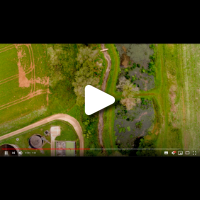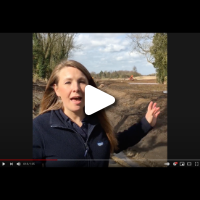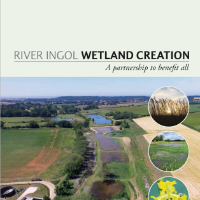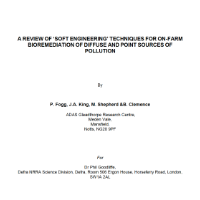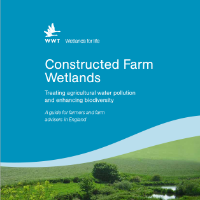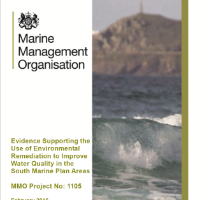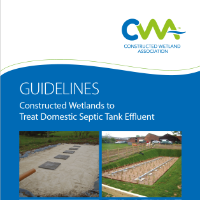Challenge 1 – Sustainability of wetlands for the economy, environment and society
With increasing interest in wetlands for wastewater bioremediation, flood management, and agriculture, how can such goals be achieved sustainably whilst optimising biodiversity and other natural capital values?
The use of natural wetlands for bioremediation is exemplified by the River Ingol Wetland project in Norfolk; the first of its kind in England. The site works as a natural treatment plant for millions of litres of water a day. The quality of water in this rare spring-fed chalk stream is improved overall, benefiting the whole of this wetland biodiversity asset; attracting breeding birds, amphibians, bats, and water voles, and an amenity for humans too.
There are proposals currently with the industry regulator Ofwat which, if successful, could see as many as 59 more treatment wetlands built in the coming years in the Anglian Water region, and a model for schemes elsewhere.
Some questions that the wider developments of such schemes pose might include:
- How can we define and communicate the benefits to biodiversity and people of managed wetlands?
- How can wetlands be used this way without compromising water quality?
- How do we achieve sustainable conservation of such wetlands?
- Can farming be managed sustainably and economically in such regions?
- How do we mitigate against unintended consequences?
There are doubtless other key challenges that could be defined.
Other varieties of bioremediation using wetlands have been proposed including those associated with farm waste and even mine discharge. These tend to employ constructed wetlands. The River Ingol project utilises a natural wetland.
We recommend you start by taking a look at the short introductory videos below, and browsing some of the other supporting documents provided.
Related resources
Teams
Over the 3-day enviroSPRINT, Teams rapidly investigated their Challenge area, identified a key problem and innovated potential solutions. The Teams demonstrated a prototype of their solution to a panel of expert judges who assessed the novelty and feasibility of the concept, along with the quality of the presentation, and selected a winner (★). Alongside this, each Team produced a 90-second summary of their idea to share with a wider audience. These can be viewed on the Team pages:
Experts
We are grateful to have the support of our expert panel:
Dr Lydia Burgess-Gamble – Principal Scientist, Flood Risk Management research team, Environment Agency
Lydia has been working at the Environment Agency for over 18 years in a wide range of flood risk management roles. For the last 8 years she has been working in a Flood Risk Research team where she led the production of the Natural Flood Management evidence base. She is now managing a project to collate a carbon offsetting evidence base to inform the development of the Environment Agency’s carbon offsetting strategy.
Dr Joe Butler – Finance and Project Development Analyst, Sizewell C, EDF
Joe has worked in the energy industry for over 7 years and joined EDF in 2017 through their graduate programme. This has included roles across customer retail energy supply, wholesale power markets and new nuclear build. Joe is now working on the Sizewell C project – a proposed new nuclear project in Suffolk – and wider initiatives workstream. This includes project managing the development of the Sizewell Clean Energy Hub (integration of hydrogen generation and direct air [carbon] capture) as well as the NetZero Leiston project, aiming to become the UK’s first net zero town.
Dr Jo-Anne Pitt – Senior Specialist, Air, Land and Water Research Team, Environment Agency
Jo is a freshwater ecologist/ environmental scientist and over many years has worked on practical application of science to the management of nutrient enrichment in lakes, rivers and wetlands. This includes lake restoration projects, setting of environmental standards, development of ecological assessment tools and design of national monitoring programmes.
Dr Jonah Tosney – Operations Director, Norfolk Rivers Trust
Jonah is a river ecologist, with a background in conservation and research. He has previously worked with Wester Ross Fisheries Trust, University of Highlands and Islands, Yorkshire Water and the Yorkshire Dales National Park. Jonah leads and oversees many of our projects, from design through to implementation.
Challenge organisers
ARIES Doctoral Training Partnership (DTP)

The ARIES (“Advanced Research and Innovation in the Environmental Sciences”) DTP was launched in 2018 with funding from the Natural Environment Research Council (NERC). It draws together expertise from five universities and nine research centres, as well as over forty other research-users. Our partnership has a mission to train postgraduate research students (PGRs) with excellent potential from across society, equipping them with the necessary skills to become 21st Century Scientists: leaders in the science and sustainable business of the natural environment.
ARIES is built upon scientific excellence within five overlapping research themes:
- Ecology and Biodiversity
- Marine, Atmospheric and Climate Science
- Geosciences, Resources and Environmental Risk
- Environmental Genomics and Microbiology
- Agri-environments and Water
Each theme is led by experienced Theme Leaders drawn from ARIES Universities and representative research users and combine scientific strength to meet the current, emerging and future major challenges across NERC science, both within the UK and beyond.
EnvEast Doctoral Training Partnership (DTP)

The EnvEast Doctoral Training Partnership was created in November 2013 with funding from the Natural Environment Research Council (NERC). The last of EnvEast’s five cohorts of students began their PhD research in the autumn of 2018.
EnvEast draws together expertise from three universities and ten research centres of national and international importance. Led by the University of East Anglia’s world-renowned School of Environmental Sciences, the partnership aims to address some of the grand challenges facing contemporary society by providing excellent multidisciplinary training to a new generation of science and business leaders working in the broad field of environmental science.
The EnvEast NERC DTP funded 87 PhD studentships over five student cohorts, starting between 2014 and 2018. EnvEast PhD research projects are grouped around three key themes of international significance, but projects and training in other important areas of NERC’s scientific remit were also funded.EnvEast has been succeeded by the ARIES Doctoral Training Partnership.
Anglian Centre for Water Studies
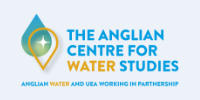
The East of England faces some key challenges in ensuring a sustainable water supply into the future. The Anglian Centre for Water Studies will work to address these by bringing together the UEA’s cutting-edge research with Anglian Water’s industry expertise.
The Centre will focus on how the industry can become more resilient to climate change, engage society, inform policy and ensure environmental sustainability, drawing on the UEA’s strengths in environmental and social sciences.
The Centre will drive a step change in research and innovation to ensure we have the resources to drive economic growth.
Anglian Water

Anglian Water aims to put water at the heart of a whole new way of living. Long-term access to secure supplies of water is one of the most pressing environmental and economic challenges the world faces today and getting to grips with that is not something that can wait until tomorrow. So we want to lead the way in raising awareness about how essential water is to life, to people and the environment, and to a vibrant and growing economy too
To do this, we’re working with everyone who influences water use in our region – housing developers, retailers, manufacturers, government and customers. We want to learn as much as we can from each other and develop new ways to supply and use water sustainably. Together, we can make all the difference in the world.
Norfolk Rivers Trust
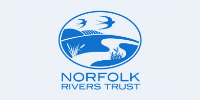
Established in 2011, the vision of Norfolk River Trust is to ensure that the quality of water provides the best habitat to benefit people and wildlife. To achieve this, the Trust delivers:
- Aquatic habitat creation
- Conservation & restoration
- Education & engagement
- Land management & farm advice
As an independent and trusted charity, the Trust’s team of experienced ecologists and advisors take a river catchment-based approach (CaBA) to develop practical, cost-effective and integrated long-term solutions.
The Trust works across Norfolk (and in the Cam and Ely Ouse Catchment) in partnership with a wide range of organisations including farmers, landowners, water companies, government bodies and the third sector, as well as the general public.The Trust funders include government bodies (local and national), private corporations, charities and independent donors.


